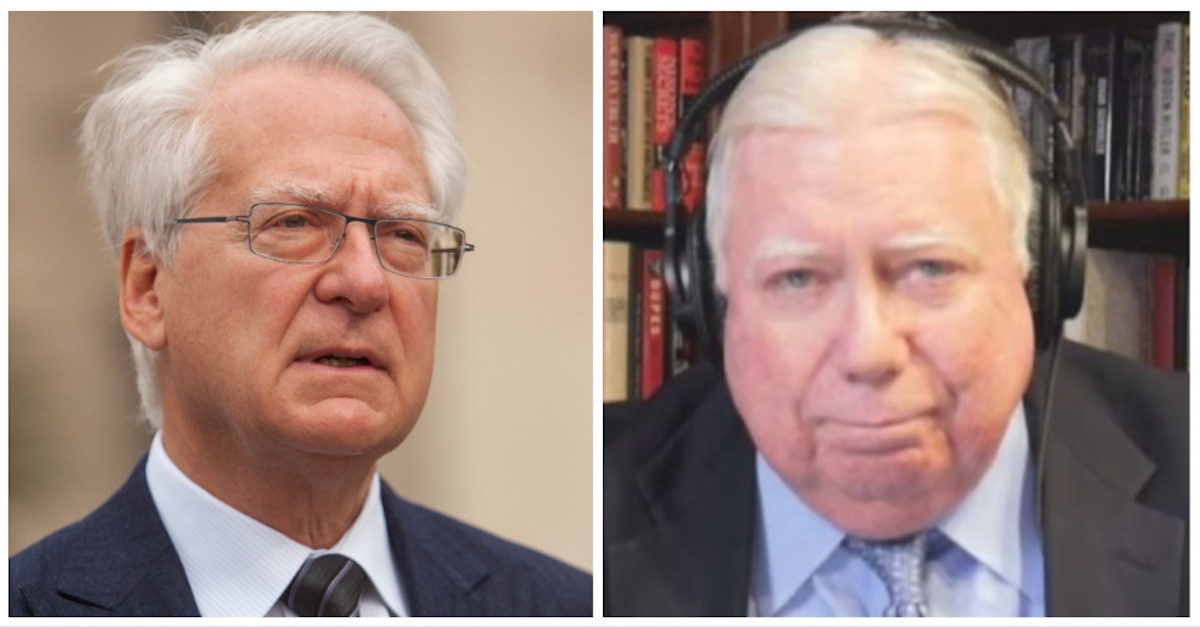
Larry Klayman, the attorney representing right-wing author Jerome Corsi in a lawsuit against special counsel Robert Mueller, did not get the judge he wanted to preside over the case.
U.S. District Judge in the District of Columbia Richard Leon has ordered the case to be “randomly assigned” to another judge as required by the general rule of the court. Klayman had argued that Local Rule 40.5, the exception to the general rule, applied in this case because his Corsi case was “related” to unconstitutional surveillance cases he’s brought before Leon in the past.
Judge Leon didn’t buy that.
“As I wrote in my show cause order, the general rule in this Court is that cases are ‘assigned to judges of this Court selected at random,'” he began. “This rule exists for good reason: it promotes fairness both in terms of the allocation of caseload to our judges and in terms of how the public perceives the case distribution process. Equally important, if not more so: our random assignment process is designed to minimize, if not eliminate, intentional efforts by litigants to game the system and secure the judge of their choice.”
The judge said that the exception to the rule exists to avoid inefficiency and conflicting decisions — with a major caveat.
“A ‘related case’ is not whatever a plaintiff wishes it to be,” he said.
Judge Leon went on to say that the prior Klayman cases (I, II, and III) brought before him were each dismissed “with prejudice” (permanently) and are still being appealed in the D.C. Circuit Court of Appeals. He pointed out that Corsi “was not a party to any of the Klayman cases” and neither was Mueller, meaning the exception “cannot” apply. But even if there was a case pending in his court and the parties were identical, Leon said, “this case and the Klayman cases do not even come close to sharing the substantive relationship necessary to constitute ‘related cases.'”
“The bare invocation of a common statutory authorization–or even a legitimate overlap in the statutory provisions at issue–does not magically convert cases involving different parties, different facts, and different subject matters into related cases under Rule 40.5,” Leon said in closing. “To conclude otherwise would undermine this Court’s well-founded random case assignment system and would invite precisely the sort of judge-shopping that the system is designed to avoid.”
Leon thereby ordered Klayman’s case to be randomly reassigned. The case has already been assigned to Judge Ellen Segal Huvelle.
Klayman and Corsi were spotted outside of court on Thursday afternoon. Klayman maintained that the way Mueller has treated his clients was an overreach.
Previously, Corsi and Klayman filed ethics complaints against prosecutors with the Special Counsel’s Office and filed a lawsuit against Mueller and various government agencies for a variety of alleged misconduct in the Russia investigation — all of this, after Corsi’s apparent negotiation of a possible plea deal with Mueller’s office fell apart.
They continue to claim that Mueller has been trying to “coerce” Corsi into lying about his involvement with longtime Trump advisor Roger Stone and WikiLeaks. Corsi has claimed that he independently figured out in 2016 that WikiLeaks would publish internal DNC emails damaging to the Hillary Clinton campaign — emails that were allegedly hacked by Russian military intelligence operatives. They also allege accuse various government agencies of “ongoing illegal, unconstitutional surveillance” of Corsi.
Law&Crime’s Colin Kalmbacher previously explained why this mattered:
Judge Leon is seen as one of the most conservative-friendly judges on the D.C. District Court. Leon has been described as a “Republican conservative who worked in the Justice Department during the Reagan years” and “served as special counsel to the House Banking Committee’s Whitewater investigation, before George W. Bush appointed him to the federal bench, in 2001.”
Corsi having his case assigned to Judge Leon would be an arguable boon for the plaintiff here.
And Law&Crime’s Ronn Blitzer predicted this outcome. From Dec. 27:
Judge Leon said on December 12 that Klayman had 14 days to explain why Corsi’s case was sufficiently related to the others to justify transferring it. On the last day, Klayman filed a response saying that Corsi’s case and the others “are all based fundamentally on illegal warrantless, and unconstitutional surveillance[.]” Because the judge in the other cases is already familiar with the arguments Klayman has made, it’s convenient to put them all together, he argued.
Judge Leon has yet to rule on that, but his plan to keep this case rolling with another hearing next week may show that he does not plan on granting Klayman’s request.
Larry Klayman vs. Robert Mu… by on Scribd
[Images via Allison Shelley/Getty Images, Newsmax screengrab]